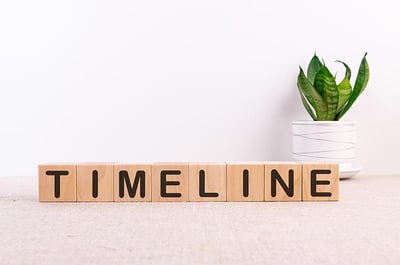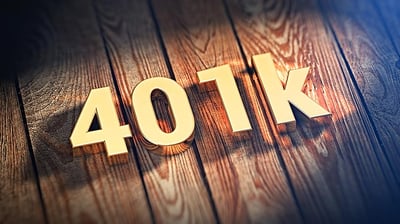How To Calculate Capital Gains Tax After Selling an Investment Property

Capital gains taxes are applied to any proceeds derived from your real property investments. How much you’ll owe depends on how long you held the asset before selling and your income tax bracket for the tax year.
What Are Closing Costs, Who Pays For Them, And How Much Are They?

Closing costs are a part of almost every real estate transaction. The key questions we hear from clients are: What are closing costs? Who pays them? How much are they? There is no quick and easy answer because there are many variables that go into determining closing costs. It all depends on the type of loan, property cost, and location of the property. Each specific transaction will vary on who pays closing costs and exactly what they will be.
Can A Delaware Statutory Trust Be A Custody For Securities?

When you open a brokerage account to trade stocks, the account must first be funded before any stock trades occur. The broker uses a separate entity called a custodian to hold your cash. As trades are opened and closed, cash moves in and out of the custodian account.
1031 Exchange Investment Timeline and Tax Implications

For investors intent on benefitting from the substantial advantages available through strategic employment of Section 1031 of the Internal Revenue Code, timing is critical. The foundation of the 1031 exchange is the concept that when an investor uses the proceeds of a property sale to purchase another property, the investor is, in effect, continuing the investment. Because the taxpayer is reinvesting all the profits, the IRS doesn't require payment of taxes on cash the taxpayer didn't receive. The investor should be aware that the tax is deferred, not eradicated. That means that if the taxpayer later sells a property without exchanging it for another qualified “like-kind” investment as a replacement, they will owe taxes on the accumulated gains.
Is TSP a Qualified Retirement Plan?

The Thrift Savings Plan (TSP), part of the Federal Employees’ Retirement System, is a defined contribution plan that closely resembles the private sector 401(k) and Roth IRA plans. It is not only a qualified plan, but it is also a part of the federal retirement system that can travel with federal employees who move into the private sector (or a different level of government) before they retire. The Federal Employees Retirement System (FERS) has three components: Social Security, to which both the employee and the employer must contribute, the Basic Benefit Plan, for which the employee also pays via payroll deduction and is partly funded by the employer as well, and the TSP. Both Social Security and TSP contributions can accompany you to another employer if you leave federal service before you retire.
How Does Financial Structure Impact A Real Estate Investment?

The financial structure (or capital structure) of a company is a combination of debt and equity used to finance business operations and growth. The levels of debt and equity can influence a company’s cash flow and potential risk exposure.
What is a 401K Retirement Plan?

A 401K is a retirement plan offered by employers to their employees. Employee contributions fund a 401K. Contributions are tax-free and come directly out of the employee's paycheck. 401K plan features vary widely across employers. This means a range of fees, investment offerings, employer match, vesting periods, and more. In this article, we'll explore the ins and outs of 401K retirement plans.
Can I Take Money Out Of My Retirement Plan?

One question that people ask from time to time, for various reasons, is whether they can withdraw money from their retirement plan. Usually, the inquiry is regarding a defined contribution, tax-deferred savings plan, like a 401(k) or a 403(b) program offered through an employer. Still, you might also ask about an IRA you established independently. While the answer to the query is generally "yes," a better question might be: "should I take money out of my retirement plan?" and that answer might be no.
How Do I Make The Most Of My Real Estate Assets?

For many investors, the attraction of real estate includes the ability to pursue diversification of your portfolio, and seek wealth accumulation, deferral or avoidance of taxes, and cash flow. As you seek to accomplish these goals, you can advance your progress with planning. As with any collection, whether in investments or art, ongoing curation is a best practice. Clearly stating your objectives is an essential step toward achieving them, and the next step is identifying and implementing some key tactical procedures to move in that direction.
1031 Exchange On A Primary Residence

The basics of the 26 U.S. Code §1031 “Exchange of Real Property Held for Productive Use or Investment” are that you can exchange any real property “held for productive use in a trade or business” into another such real property, and defer capital gains taxes on that exchange.


